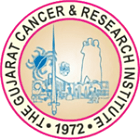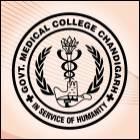- Home
- Courses
- Predictors
- Packages
- About
- Login
- Contact
- Near NRR Hospital, Thammenahalli Village, Bengaluru, Karnataka 560 090
- +91 8904151144
- cgmanagement00@gmail.com
Content Writer: Shubham S Nimje
Published on: Tue Jan 09 2024Updated on: Sun Jan 21 2024
Introduction: In the realm of healthcare, the Bachelor of Ayurvedic Medicine and Surgery (BAMS) stands as a revered pathway, blending traditional healing wisdom with modern medical education. Rooted in ancient Ayurvedic principles, this degree offers a holistic approach to healthcare, emphasizing natural remedies, wellness, and personalized treatment. This comprehensive guide aims to illuminate the essence of BAMS, its admission criteria, top colleges, career prospects, and more.
BAMS is an undergraduate program that integrates traditional Ayurvedic teachings with modern medical education. It focuses on ancient healing practices, herbal remedies, diet, lifestyle, and holistic healthcare approaches.
Individuals passionate about holistic healing, ancient medicinal practices, herbal medicine, and those inclined towards natural therapies and wellness approaches are well-suited for BAMS.
Admission to BAMS programs in various institutions across India typically starts in the early months of the year, with specific dates and notifications released by respective universities and colleges.
Candidates seeking admission to BAMS programs usually need to pass the 10+2 examination with Physics, Chemistry, Biology, and English as compulsory subjects. Specific eligibility criteria may vary between institutions.
Entrance exams like NEET (National Eligibility cum Entrance Test), AIAPGET (All India Ayush Post Graduate Entrance Test), and state-level Ayurveda entrance exams serve as entry gates for BAMS programs.
Aspiring BAMS students should possess strong analytical skills, a keen interest in traditional medicine, empathy, patience, and a holistic approach to healthcare.
Banaras Hindu University (BHU) is among the prestigious institutions offering BAMS programs. Its emphasis on traditional Ayurveda teachings combined with modern medical education makes it a preferred choice for many aspirants.
Government institutions like National Institute of Ayurveda (NIA), Gujarat Ayurved University, and Ayurveda College, Kerala, rank among the top BAMS colleges known for quality education and infrastructure.
Private institutions like Shri Dhanwantri Ayurvedic College, Government Ayurved College, and Bharati Vidyapeeth Deemed University, Pune, are renowned for their BAMS programs and infrastructure.
States like Karnataka, Maharashtra, Uttar Pradesh, and Gujarat host several reputable BAMS colleges, providing quality education in Ayurvedic medicine.
The BAMS curriculum includes subjects such as Ayurvedic anatomy, physiology, pharmacology, pathology, Panchakarma, medicinal plants, and therapeutic approaches aligned with Ayurvedic principles.
Students in BAMS can specialize in areas like Panchakarma, Dravyaguna (medicinal plants), Kayachikitsa (internal medicine), Shalya Tantra (surgery), and more, based on their interests and career goals.
BAMS graduates can further their education with various paramedical courses like D. Pharm (Diploma in Pharmacy), DMLT (Diploma in Medical Laboratory Technology), or pursue higher studies in Ayurveda specialties.
Graduates with a BAMS degree have diverse career options, including practicing as Ayurvedic physicians, consultants, researchers, educators, spa therapists, wellness experts, or working in healthcare administration.
Ayurvedic practitioners can work in government hospitals, private clinics, wellness centers, Ayurvedic resorts, pharmaceutical companies, research institutes, and earn salaries ranging from entry-level to experienced practitioners based on their expertise and experience.
BAMS programs typically include a mandatory internship that allows students to gain hands-on experience in Ayurvedic hospitals or clinics. This practical training enables them to apply theoretical knowledge to real-world patient care.
During internships, students often receive training in Panchakarma therapies—a set of detoxification and rejuvenation procedures integral to Ayurvedic medicine—under the guidance of experienced practitioners.
BAMS graduates play a crucial role in bridging the gap between traditional Ayurvedic practices and modern healthcare systems, contributing to integrative medicine approaches that combine both systems for patient care.
BAMS professionals adopt a holistic approach during patient consultations, considering not just the symptoms but also the individual’s constitution, lifestyle, diet, and mental well-being, aligning with Ayurvedic principles.
BAMS graduates are encouraged to engage in research projects exploring Ayurvedic remedies, herbal formulations, lifestyle interventions, and efficacy studies, contributing to the advancement of Ayurvedic knowledge.
Continued research and innovation in Ayurveda aim to modernize traditional practices, validate ancient remedies through scientific methods, and enhance the credibility and acceptance of Ayurvedic treatments.
Ayurveda places significant emphasis on preventive healthcare through practices like Dinacharya (daily routine), Ritucharya (seasonal regimen), and Swasthavritta (health-promoting lifestyle).
BAMS professionals advocate for health and wellness promotion through personalized diet plans, lifestyle modifications, yoga, and herbal supplements tailored to individual constitutions.
BAMS graduates often establish their Ayurvedic wellness centers offering consultations, Panchakarma therapies, herbal treatments, yoga, and Ayurvedic lifestyle guidance.
Some BAMS graduates venture into the development and marketing of Ayurvedic herbal products such as skincare, haircare, supplements, and wellness formulations.
As Ayurveda gains recognition worldwide, BAMS graduates can contribute to promoting Ayurvedic practices, obtaining certifications, and working in healthcare setups that acknowledge and integrate Ayurveda.
Some international institutions offer collaboration programs or accreditations that allow BAMS graduates to gain exposure, collaborate, or pursue further studies in Ayurveda globally.
After completing BAMS, professionals can pursue advanced studies or postgraduate courses in specialized areas of Ayurveda such as Panchakarma, Dravyaguna, Kayachikitsa, etc.
Continuous learning through seminars, workshops, conferences, and certifications in specific Ayurvedic specialties helps BAMS graduates stay updated with the latest advancements in the field.
As interest in holistic healthcare grows globally, the demand for qualified Ayurvedic practitioners is expected to increase, offering employment opportunities both in India and internationally.
The future of Ayurveda holds promise in continued research, innovation, and integration with modern healthcare systems, offering avenues for BAMS graduates to contribute to the evolving field.
A: BAMS graduates are trained in Ayurvedic medicine and are legally allowed to practice Ayurveda. However, practicing allopathic medicine without appropriate licensing is not permitted.
A: BAMS graduates can work as Ayurvedic practitioners, researchers, educators, wellness consultants, spa therapists, or pursue higher studies in Ayurvedic specialties.
A: BAMS degrees from recognized institutions in India hold credibility globally, allowing graduates to practice or pursue further studies in countries that recognize Ayurveda.





Copyright © 2023 Career Guidance Management
Design and Developed by CGM